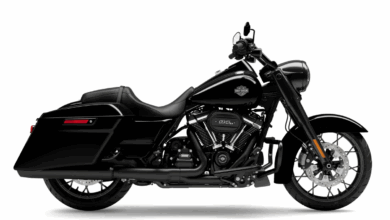Chevrolet’s lineup of compact and midsize SUVs offers versatile options for drivers seeking practicality and comfort. The 2023 Trax and Equinox, while sharing a Chevrolet heritage, cater to distinct preferences. Below, we break down their key differences to help you decide which suits your lifestyle.
Design & Dimensions
The Trax (introduced in 2017) and Equinox (launched earlier, with a recent redesign) differ in size and styling. The Trax is a compact SUV, with dimensions akin to a minivan, making it more maneuverable in tight spaces. Its angular, sporty design leans toward a modern aesthetic. The Equinox, a midsize SUV, offers a roomier cabin and a curvier, sportier profile. Measuring nearly six inches longer and four inches taller, the Equinox provides more backseat legroom and a commanding road presence.
Performance
Both models feature turbocharged inline-four engines, but their outputs vary. The Trax’s 1.2-liter 3-cylinder engine delivers 160 horsepower and 138 lb-ft of torque, prioritizing fuel efficiency over power. The Equinox’s 1.6-liter turbocharged four-cylinder produces 170 horsepower, offering slightly better acceleration and towing capacity (up to 3,500 lbs vs. Trax’s 2,000 lbs). While the Trax lists highway fuel economy at 33 mpg (AWD: 30 mpg), the Equinox achieves 36 mpg (FWD) and 30 mpg (AWD), tying efficiency with performance.
Interior & Comfort
The Equinox’s larger size translates to 42.7 cubic feet of cargo space (expanding to 1,125 without folding seats), outclassing the Trax’s 795 cubic feet. Passenger room also shines in the Equinox, with more legroom in both rows. The Trax, however, opts for premium touches like synthetic leather seats in higher trims, while the Equinox balances comfort with versatility, including an available 7-passenger configuration.
Technology & Features
Technology gives the Trax a slight edge. Its 8-inch infotainment screen supports Apple CarPlay, Android Auto, and Alexa integration, paired with wireless charging. The Equinox’s 7-inch display, though equally functional, adds a heads-up display in higher trims. Both offer multiple drive modes (Normal, Sport, Tow/Haul, and Trail for Equinox), but the Trax includes Super Cruise (in select trims) and an enhanced off-road capability with its Trail Mode.
Safety
Safety excels in both vehicles, though the Trax edges ahead. Standard with 18 safety features, the Trax includes adaptive cruise control and lane-keep assist even in entry-level models. The Equinox, while robust, reserves some tech (like rear cross-traffic alert) for higher trims. Both earned top marks in IIHS tests, but the Trax’s newer, more comprehensive toolkit feels slightly more advanced.
Pricing
Starting at $27,500 (Trax) and $29,400 (Equinox), the Trax is initially more affordable. However, mid-trim upgrades (like Preferred and Premier) push the Trax to $37,300, while the Equinox ranges up to $39,500. AWD adds approximately $2,000 on both.
Verdict
Choose the Trax if you prioritize a compact footprint, budget-friendly pricing, and cutting-edge tech. Opt for the Equinox for expanded space, versatile seating, and a balance of power and efficiency. Both reflect Chevrolet’s commitment to innovation, but the Trax’s smaller size and modern features make it a standout in the entry-level segment, while the Equinox excels as a spacious, slightly pricier option.
Final Note
Test-driving both can highlight personal preferences—whether efficiency and agility (Trax) or space and activity readiness (Equinox) matter most. Ultimately, Chevrolet delivers capable choices for diverse drivers.



